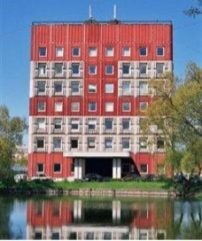
An International Atomic Energy Agency (IAEA) Integrated Regulatory Review Service (IRRS) team of experts said Latvia has made clear improvements to its regulatory infrastructure, making it more efficient and effective. The team also encouraged Latvia to continue efforts to complete its work programme to further align regulatory framework with the IAEA safety standards.
The IRRS follow-up mission was conducted at the request of the Government of Latvia and hosted by the Radiation Safety Centre of the State Environmental Service (RSC SES). Its purpose was to review the progress made against the recommendations and suggestions identified in the initial IRRS mission in 2019.
The IRRS team – comprised of five senior safety experts from five IAEA member states, in addition to two IAEA staff members – conducted interviews and discussions with RSC SES staff and representatives from the Ministry of Climate & Energy.
Latvia does not have any NPPs but uses radiation sources in medical, scientific and industrial applications, as well as in science and research. The country’s research reactor has been permanently closed since 1998 and is currently in the early stage of decommissioning. All used highly enriched uranium fuel was sent back to the country of origin. Latvia operates a disposal site for low and intermediate level radioactive waste, which is located 30 km from the capital Riga.
The team reviewed the regulatory oversight of all facilities and activities using nuclear material and radiation sources, as well as emergency preparedness and response, transport, decommissioning, and occupational, medical and public exposure control. The IRRS team determined that of the 23 recommendations and 12 suggestions made in 2019, 17 recommendations and 10 suggestions have been adequately addressed and are therefore closed. The Government of Latvia and RSC SES have an action plan to address the remaining recommendations and suggestions in the coming years.
“We found that the RSC SES has made significant progress in addressing the recommendations made in 2019” said Paul Dale, Team Leader for the mission, from the Scottish Environment Protection Agency of the United Kingdom. “The work undertaken by RSC SES to date should be applauded, and we welcome the well laid plans set out by RSC SES to address the remaining recommendations in the next few years. The IRRS team welcome the commitment of RSC SES to continue to progress its regulatory systems and to continually improve.”
The mission team identified an area of good performance – the Long Term Training Plan developed by RSC SES to deliver and maintain competency of its staff – and highlighted notable achievements since 2019, including:
- The revised legal and regulatory framework, which provides an improved safety framework for regulating all facilities and activities in Latvia;
- The national policy and strategy for radiation safety, along with policies and strategies for radioactive waste management, which are now addressed in the Environmental Policy Guidelines for 2021 to 2027;
- Significant improvements throughout the RSC SES integrated management system, including the development of a programme for the promotion of leadership and safety culture; and
- Strengthened emergency and preparedness response, through the coordination of an interinstitutional working group, training seminars and exercises.
“The IRRS follow-up mission has provided an opportunity to qualitatively assess the tasks set by international experts in 2019 for the improvement of the radiation safety infrastructure in accordance with IAEA standards,” said Dace Satrovska, Director of the RSC SES. “Since 2019, our team has significantly improved the quality management system, also strengthening the radiation safety culture in Latvia. We are ready to continue working on areas that need improvement, especially on radioactive waste management and emergency preparedness.”
The final mission report will be provided to the Government in about three months.






